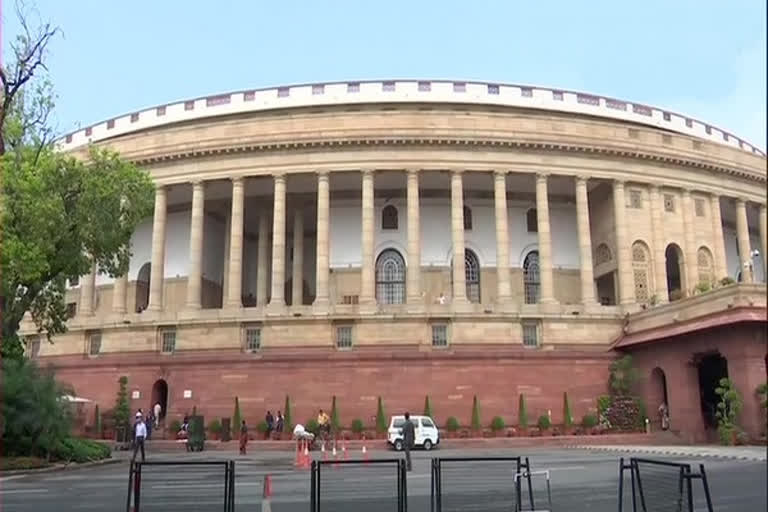Hyderabad: After a long gap of 174 days from the last Budget session the Parliament monsoon session will be held from the 14th September....an event never happened like this in decades!
The monsoon session, which is being held in compliance with the constitutional dictate that the gap between the two sessions of the Parliament should not exceed six months, may better be called 'COVID Session' this time! This is at a time when the COVID epidemic is raging with over 41 lakh cases and over 70 thousand deaths across the country. The state of health emergency declared by the Centre has significantly influenced the meetings of the Parliament.
The sessions, which will be held from September 14 to October 1 without break, will be held in two shifts - Lok Sabha in the morning and Rajya Sabha in the afternoon.
The latest rules stipulate that since each shift is reduced to four hours, there will be no Question Hour, the Zero Hour will be limited to half an hour, and Private Member's bills will not be allowed. China's encroachments on the borders, Corona deaths domestically, a decreased growth rate of minus 23 per cent, stagnant employment and unprecedented industrial slow down are all indicative of the catastrophe looming large.
Under these circumstances, Question Hour can be the right platform to question the government, discuss the wider issues of public welfare and arrive at plausible answers. Despite the cancellation of Question Hour, the Central Government says it will provide written answers to ‘un-stared’ questions -- they are not a substitute for oral answers.
There is no point in cancelling Question Hour when the essence of democracy is accountability. Though there were instances of cancelling the Question Hour during the emergency of Indo-China and Indo-Pak wars, the present crisis is different from them. Mature Question Hour is the right touchstone for the combined wisdom of the Parliament in times of crisis!
The words of the Constitutional Expert Sir William Ivor Jennings are true to the letter and spirit that the work of Parliament is not to govern, but to argue, discuss and arrive at better decisions. The ideal democracy is one which recognizes the right of criticism of the opposition to steer the ruling government in the right direction. The Bihar MP Ram Subhag Singh's question posed to the then Finance Minister TT Krishnamachari during the question-and-answer session of the Parliament in 1957 exposed the first scandal in independent India. It is the sacred duty of the members of the House of Representatives to pose pointed questions to the executive on behalf of people to make it responsible to the legislature. To facilitate this half-an-hour has been allocated to the Prime Minister of Britain during the Question Hour, on every Wednesday to respond to the members personally, since 1961.
The Parliament which meets at least for 160 days in a year there, the opposition has the privilege of setting the agenda for 20 days per session enlivens the spirit of democracy. Although the Lok Sabha Secretariat itself declares that it is the inalienable right of the Members to ask questions in the Parliament, only 67 per cent of the Question Hour time was properly utilized during the last Lok Sabha session. The Rajya Sabha could utilize only 41 per cent of its question and answer time during the period 2009-19. The parties accusing of the abolition of Question Hour must introspect themselves on the way they wasted the valuable time in the past. Modi who mentioned about 'Sab ka Saath, Sab ka Vikas, sab ka Vishwas' (working for everyone's cooperation, everyone's development, everyone's confidence) last year in the direction of unveiling a new India, must also sincerely give priority to that spirit in the Parliament Session.
ALSO READ:Centre snatching MP's right by suspending Question Hour, says Sachin Pilot
